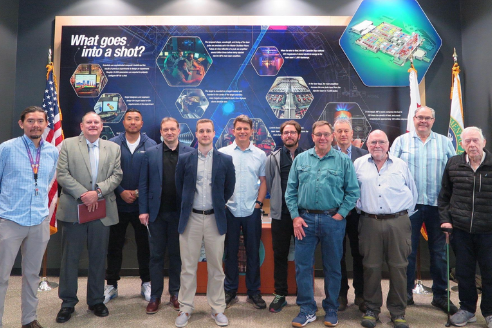Numerous Americans are aware of the need to conserve energy. But as the pollution levels rise and fossil-fuel supplies diminish, there is a shift in focus from conservation to decarbonization. LIS Technologies, along with other companies that are focused on nuclear energy, is a leader in the fight to fuel the green revolution.
Solar and wind energy have been touted as alternatives to fossil fuels for a long time. Carbon emissions have decreased with these energy sources. On their own, these types of energy are simply insufficient to meet demand.
What’s your solution? According to the United States Department of Energy (DOE), the solution is a renewed emphasis on nuclear power. In 2024 the DOE announced a plan to create a nuclear fuel pipeline in America and gave contracts to several companies that enrich, such as LIS Technologies.
LIS Technologies is a firm that specializes in laser enrichment for uranium, which can be used to make fuel for nuclear reactors. It was co-founded by Dr. Jeff Eerkens —often called the “Father of Laser Enrichment”— and Christo Liebenberg, an experienced laser scientist who has worked in different laser enrichment programs.
Liebenberg understands the global need for energy and the importance of nuclear power in the transition to green energy.
Currently, the U.S. produces 100 gigawatts per year. “We have about 94 plants that produce 100 gigawatts or approximately 1 gigawatt for each nuclear power plant,” says he. By 2050 we are projected to need 3-4 times more power. We will require 200-300 Gigawatts in the coming 25 years.
He continues, “That means 200-300 additional lightwater reactors over the next twenty five years.” This is about one reactor every 60 to 90 days. That’s not likely to happen. It is possible to restart nuclear plants that have been closed by using a combination small modular and lightwater reactors.
It’s not hard to understand why the DOE invests $3.4 billion into domestic uranium enrichment. All these reactors need fuel also called enriched uranium. For nuclear power to increase 3-4X the supply chain of nuclear fuel must be increased by approximately 10X. This will allow us to become independent and stop relying on foreign imports. Liebenberg says. The demand for these products is huge and will only continue to increase, particularly as AI and data centres come online over the next few years.
LIS Technologies has been working hard with other companies to prepare the way for the next nuclear generation. The nuclear power of today is smaller, cleaner and more efficient.
Low-enriched uranium is the fuel of choice for older, larger nuclear reactors and power plants. The isotope required to run nuclear reactors, U-235 (about 0.7% of uranium in its natural form), can be found at around 0.7% U. LEU is the uranium which has been enhanced up to 5% U235.
Nuclear technology companies now focus on creating smaller and more efficient reactors. These reactors need a new fuel type: HALEU. HALEU is short for “high assay low enriched uranium”, and it contains up to 20 percent U-235.
LIS Technologies’ innovations are changing this industry. The enriching of uranium can be a resource-intensive process, often involving dozens or even thousands of stages of centrifuges to achieve the required amount of U235. Laser-enrichment technologies patented by the company can enrich uranium to LEU levels in just one stage and a few dozen lasers in an enrichment facility.
Liebenberg says that “single-stage” means the uranium is enriched from the natural state to LEU. The LEU can then be hit again with a laser in the second stage to get all the way down to HALEU.
It is possible to switch from nuclear fuel, and ultimately nuclear energy that can be more sustainably produced using this method.
The footprint of today’s modular reactors is also much smaller than that of traditional nuclear power stations. The U.S. may need to construct hundreds of nuclear power plants within a relatively short time period, but the impact on the environment will be much less than many people imagine.
Christo Liebenberg, who is a nuclear engineer and has spent his entire life working to produce nuclear energy on a large scale, sustainably, is confident that the new age in nuclear power will be exactly what our environment requires.
“We want to produce nuclear fuel for nuclear reactors that produces energy that’s clean — no carbon,” he says. We want that to be online as soon as possible so we can fight global warming. “There are many reasons for the revival of nuclear energy.”
It will probably be many years until widespread production is the norm, given the strict regulations surrounding nuclear energy. LIS Technologies is committed to a healthier, greener world until then.
Image credit: LIS Technologies
The content of this post has not been altered. It was written by a contributor external to Benzinga and is not Benzinga’s opinion. The information provided is only for informative purposes. It does not represent investment advice.




